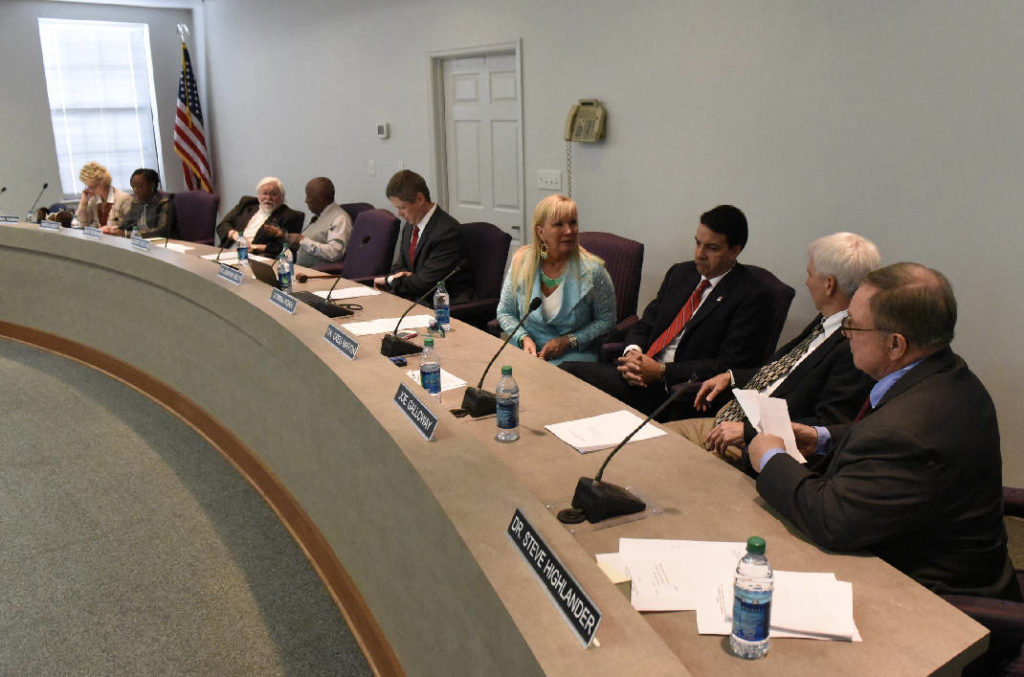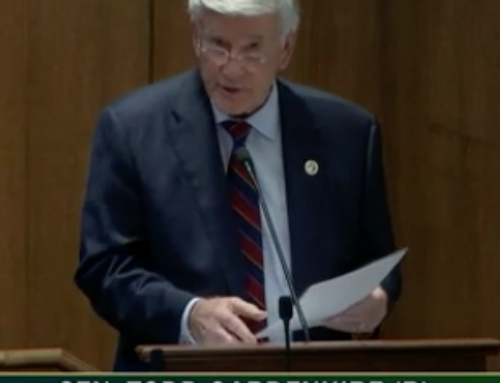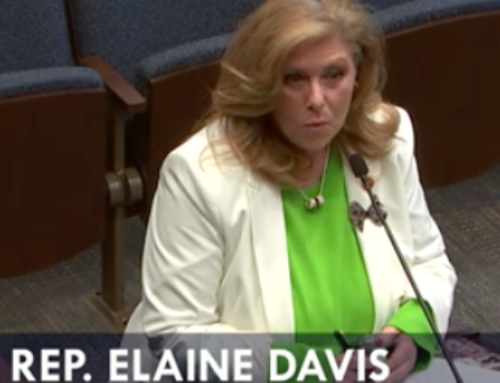Would your school board vote on a capital plan without public notice?
If there’s one type of governing body that generates the most open meetings questions to my help line, it’s school boards.
So let’s put ourselves in the shoes of a school board member for a moment and consider the following scenario.
I hope it will provide you some ideas the next time you ask a school board candidate where he or she stands on government transparency. Instead of allowing the stock answer, “I’m pro-transparency,” how would your potential school board member react in this situation?
Four months ago, the school board hires a new superintendent. He immediately faces a list of overdue capital improvement projects. Some schools need extensive repair or renovation — sewage is backing up in hallways. Others are overcrowded and desperately need more space. Parents want better athletic facilities.
The school board has not spent significant money for capital improvements in years. Finally, the county commission passes a tax increase and said it would commit $100 million to the school district to help fund school construction and repairs.
It was not all the money the school board wanted, but it will go a long way.
It’s your job, as a school board member, to approve the final list of projects.
The new superintendent has been talking individually with school board members, letting them know what is on his developing project list. The public hasn’t seen the “developing” list, but you have an idea of which projects the superintendent thinks are important.
You think you may get to vote on the list at this month’s meeting on Thursday. Some parents won’t be happy, but with so many projects funded across the entire school district, many will.
The agenda for the school board meeting comes out, but there is no item for a vote on the capital projects.
The superintendent tells you he is still talking with the county mayor, and thinks he may be able to get additional funding which would cover more projects. He’s waiting to finalize his list. He hopes there can be a vote on Thursday but he’s not sure.
On Thursday, just hours before the meeting, the superintendent updates the agenda with an item to vote on a $125 million capital plan to fund a list of projects.
Do you, as a school board member:
- Vote to approve the projects. No discussion is needed because you’ve been talking with the superintendent. While not all the projects are on the list, overall it seems like a fair plan. And you trust the superintendent to make the best decisions.
- Ask to postpone the vote because it was added to the agenda at the last minute. You worry that the public didn’t get a fair chance to know about the plan before the vote. The plan had not been given to the media in advance because it was in limbo until just a few hours ago. In fact, this is the first time you are actually seeing a finalized plan.
- You worry about a possible violation of the state’s Open Meetings Act. The law requires you give the public adequate notice of your meetings. Does that mean the school board can’t make last-minute additions to its agenda? You suggest checking with the attorney. If the school board’s attorney thinks it is within the law to add an agenda item last-minute, you are OK with voting.
When candidates are running for public office, we should ask these types of questions. It might reveal more about how they would govern and allow everyone to consider what real transparency looks like.
Voting on a $125 million capital plan without public notice
The scenario above is based on a real one that occurred in October with the Hamilton County Board of Education. Short answer: The school board voted to approve a $125 million capital plan with no discussion and no concern expressed that the public was not given adequate notice of the vote.
I talked to Hamilton County Superintendent Bryan Johnson and asked him why he waited until the last minute to put the item on the agenda.
Johnson became the superintendent of the Hamilton County school district in June after working for Clarksville-Montgomery County Schools as chief academic officer so I assumed he would be familiar with the Tennessee Open Meetings Act.
Johnson said he wasn’t sure that he would be ready with the plan for a vote on Thursday, and had still been working with the county mayor to see if he could get additional funding. It wasn’t until Wednesday night that he realized he could not. The plan he ultimately put together counts on $100 million from the county tax increase, and another $25 million from reserves and elsewhere.
Johnson said he felt great urgency to get construction under way. He explained to me that if the school board had waited until their November meeting to vote, it would have been January before the issue could go before a county commission meeting for final sign-off. That would have delayed the start of getting bids into 2018. He wanted to begin the request-for-proposals in December so construction could begin sooner.
In a perfect world, he told me, he would not have asked to put the item on the agenda at the last minute, but he was facing “abnormal” circumstances.
I asked if he had considered a special-called meeting the next week to vote. No, it didn’t come up, he said.
I also asked if any of the nine members of the Hamilton County school board raised the issue of lack of adequate notice for the public. Not that he could recall.
The news media in Chattanooga raised heck and wrote some strong editorials. And some community groups and individuals were alarmed. But not a single school board member was reported to have questioned whether the board was violating either the letter or the spirit of the Open Meetings Act.
So were they?
Changes to an agenda
An advisory opinion by the Office of Open Records Counsel on March 16, 2012 comes closest to answering that question. The question was: “May an agenda be amended during a meeting to add items that did not appear in the meeting notice?”
Former Open Records Counsel Elisha Hodge said in the opinion that it is not advisable.
“Anytime a meeting is scheduled to occur, whether the meeting be a regularly scheduled meeting or a special called meeting, a governing body is required to provide the public adequate notice of the scheduled meeting. Tenn. Code. Section 8-44-103. The courts in Tennessee have declined to provide a bright-line rule for what constitutes ‘adequate public notice’, but instead have held: ‘We think it is impossible to formulate a general rule in regard to what the phrase ‘adequate public notice’ means. However, adequate public notice means adequate public notice under the circumstances, or such notice based on the totality of the circumstances as would fairly inform the public.’ ” Hodge was quoting the Tennessee Supreme Court from Memphis Publishing Company v. City of Memphis (1974).
For a special called meeting, the courts have outlined a test that specifies that the governing body must include on the agenda what they plan to discuss. But in one of the few cases involving the agenda of a regularly scheduled meeting — Souder v. Health Partners, Inc. (2008) — the appeals court looked at the “totality of the circumstances” and determined that omitting an item about limiting a physician network “did not make the notice inadequate in light of the several purposes of the meeting.”
Hodge concluded that for a regularly scheduled meeting, “there does not appear to be any statutory provision or case law that would preclude the agenda from being amended during the course of the meeting. However, from a best practice perspective, this office would not suggest that a member of a governing body request to amend an agenda at a regularly scheduled meeting to address an item that the other members have not had an opportunity to consider or research.
“Likewise, from a best practice perspective, this office would not suggest that a governing body amend an agenda during a regularly scheduled meeting to include an issue in which the governing body knows that there is significant public interest and knows that if the item had been on the agenda that was originally published for the meeting, there would have been increased public interest and attendance at the meeting.”
Clearly, the public had significant interest in how the Hamilton County Board of Education would spend $125 million in capital improvements among schools. The plan included merging, renovating and building new schools, which is usually of high interest to parents and surrounding property owners.
Would a judge consider a last-minute decision to vote on a huge capital program without notifying the public a violation of the both the spirit and letter of the law that requires adequate notice?
A judge just might. But next time you have a school board race, find out if your candidates would.
Deborah Fisher is executive director of Tennessee Coalition for Open Government.







